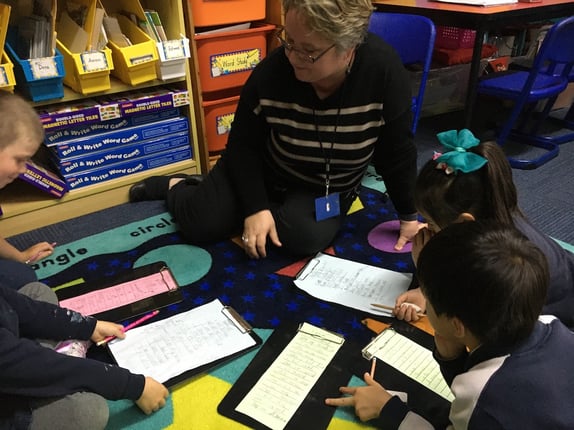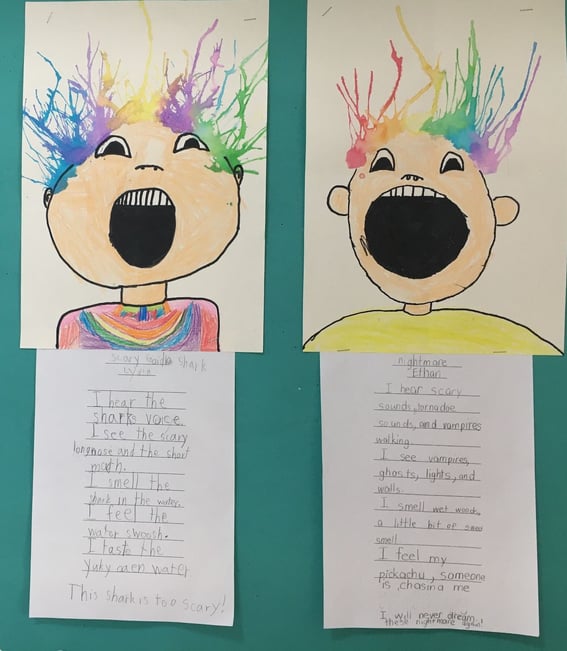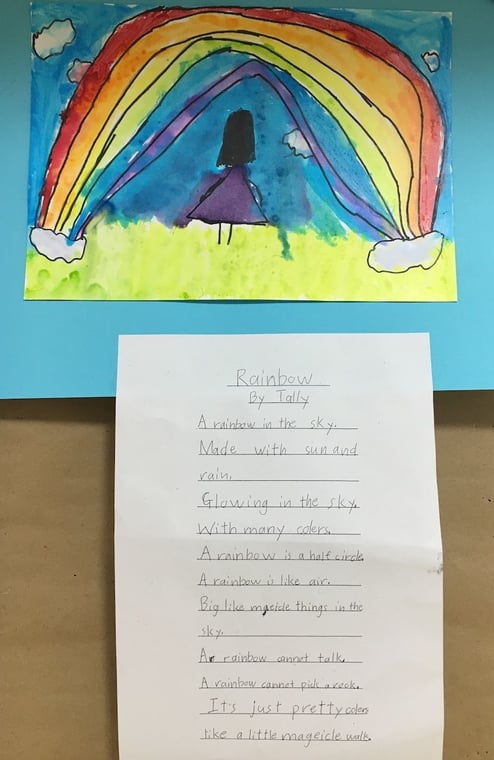It has been said that the best gifts come in small packages, and this is certainly true about the art of poetry. Poetry is a powerful form of expression that is often underestimated as a tool for language development. The power lies not only in the meaning that is captured within but also in the way words are chosen and carefully arranged to convey the message.

Poetry is an effective tool for engaging and supporting language learners as well as enriching the language development of all students. Like a carefully chosen gift, poetry surprises the reader with its ease of accessibility, relevance, and engagement.
Poetry is far more than simply analyzing a poem word for word, stanza by stanza, or an experience of finding just the right rhyming word for each couplet. It is a personal expression of ideas, thoughts, and feelings that conveys a clear message to others. It is a gift that, when opened, holds a myriad of benefits for the recipient.
Poetry can broaden a child’s reading choices.
There are many anthologies and poetry collections that can meet the needs of any reader. Reading poetry can be less intimidating for students who are learning a language as repetition is used often and text is segmented into shorter phrases which makes the text easier to read. Exposing children to this genre helps to build confidence as they read aloud focusing on expression, intonation, and fluency.
Poetry supports early awareness of language, phonics, and rhythm.
Poetry offers the reader the opportunity to notice rhyme and the playful way in which it is used in a poem. Children learn to listen to the sounds in order to identify which part of the word is rhyming then they can practice creating their own words that rhyme. When listening to a poem read aloud, children hear the distinctive rhythm that is produced through intentional word choice, line breaks, and a specific number of syllables. Besides rhyme and rhythm, the inclusion of sensory language is well used in children’s poetry. Descriptions of what is seen, what can be heard, felt, smelled, or tasted are included to give children a vivid image of what the poet is describing.
 Students focus on using sensory words as they write poems about things that are scary.
Students focus on using sensory words as they write poems about things that are scary.
Poetry is an excellent tool for developing stronger language skills and expanding vocabulary.
Poets purposefully select rich, descriptive words, specific, powerful action words, and figurative language to best express their ideas. This intentional focus on word choice and language creates the setting for children to be exposed to a kaleidoscope of language and vocabulary that they might not have encountered before. The use of repetition, alliteration, metaphors, similes, and more, expose students to language that they will need as they develop as readers but are also figures of speech that they can incorporate into their own pieces.
 In this Rainbow poem, the student uses figurative language to describe concepts learned in science.
In this Rainbow poem, the student uses figurative language to describe concepts learned in science.
Poetry is a versatile tool across content areas. In the classroom, poetry can be infused into any content area.
It can be used to introduce a new unit of study, to expose students to the key terminology that will be encountered, to summarize key concepts studied, or to extend a unit of study. Poetry that is connected with the content areas is a tool that students can refer to throughout their unit to support vocabulary development and understanding of concepts. It is a simple way to present complex concepts to students in a way that is not overwhelming but rather memorable and easy to grasp. Beginning a unit of study with a poem helps to provide students with the opportunity to build background knowledge and to engage in dialogue surrounding the topic.
The richness and power of poetry is a tool that needs to be harnessed with students whether at school or in the home environment. There are many advantages to reading poetry aloud or writing personal pieces of poetry on a regular basis with children. Although poems have so much to offer, the real gift of poetry is in the simple enjoyment that it brings to the reader.




